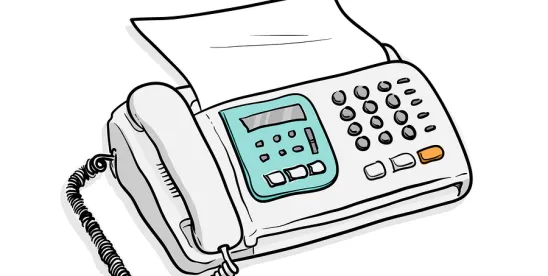I love it when a Court bails out a TCPA Defendant. But I love it more when Defendants don’t need to be bailed out.
For your consideration.
In Scoma v. Matercard, et al., 2022 WL 1665446,16-cv-41-JLB-MRM (M.D. Fl. May 25, 2022) the Plaintiff is pursuing one of these absurd TCPA fax class actions you read about from time to time. Apparently, some knucklehead sent faxes advertising Mastercard credit cards without permission, although it is unclear whether Mastercard even knew it was happening.
Regardless, Mastercard is stuck in the case– in which Plaintiff seeks a familiar $500.00 per fax–which was certified a while back.
For reasons I won’t burden your Friday morning with, the class is limited to individuals that received faxes on standalone (actual) fax machines, and not on a computer via an eFax sort of product.
After the class was certified Plaintiff sought permission to issue subpoenas to carriers to determine which potential class members were using real-life fax machines (do they still make those?) and which were not.
Mastercard opposed the request but, critically, did not ask for discovery to be re-opened for its own expert to review the records obtained from the subpoena or to conduct depositions regarding information obtained from the carriers to determine whether it was accurate.
Since discovery was closed when the Court granted Plaintiff the needed permission to issue the subpoena it looked like Mastercard was a sitting duck.
But recalling the case of Goose vs Gander (don’t cry fowl), the Court bailed Mastercard out and gave it permission to obtain discovery related to the subpoenaed records after all.
The Plaintiff argued vociferously that Mastercard had waived its right to seek discovery and failed to behave diligently when, you know, it didn’t ask for it in the first place. But the Court disagreed.
The timeline shows that Plaintiff moved for the subpoenas on February 16, 2022. The Court granted the motion on March 31, 2022. And Mastercard raised the idea of further discovery in a case management report filed April 21, 2022, before filing a formal motion for discovery on May 2, 2022.
Trust me, a court could very easily have found that Mastercard failed to act diligently here–again, the request for discovery could (should?) have been raised in its original opposition to the Plaintiff’s subpoena request. But the Court was moved by attempting to keep an even playing field here:
[I]t would be unfair to permit Plaintiffs to engage in the subpoena process, which would otherwise be untimely, and not permit Mastercard to conduct related discovery. Indeed, “discovery is a two-way street.”
That is a wise and prudent ruling by a thoughtful judge and Mastercard is fortunate to see such a ruling.
As I always say, TCPA class litigation is not for the faint of heart or the green of horn. Missing out on a critical opportunity to test the sufficiency of subpoenaed records could have been a terrible disaster for Mastercard–the alternative might have been the Court simply accepting Plaintiff’s version of events respecting what the subpoenaed records showed. It is great to see Mastercard get its chance to test the data–ultimately litigation should be about finding the truth and not just winning–but litigants should take careful note of the fact that Mastercard got a little lucky here.
Keep your eyes on the prize folks. Every little procedural play matters when there is massive 8, 9, 10 or even 11 figures on the line….
Happy weekend.




 />i
/>i

